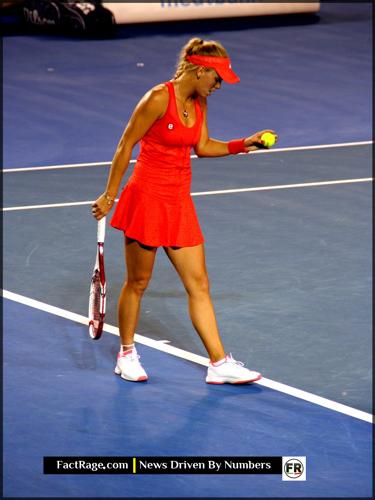LONDON, UK – As the world’s best tennis players vie for the prestigious Wimbledon title, the most formidable opponent for many, including top contender Aryna Sabalenka, is often the one inside their own head.
- The Mental Game – In elite tennis, psychological resilience and the ability to perform under extreme pressure are considered as crucial as physical skill and athletic prowess.
- A Case Study in Resilience – World No. 2 Aryna Sabalenka has openly discussed her work with sports psychologists to overcome on-court anxiety, particularly severe issues with her serve, which she successfully rebuilt to win a Grand Slam title.
- The Wimbledon Pressure Cooker – The historic weight, intense media scrutiny, and unique grass-court conditions of Wimbledon create a uniquely stressful environment that tests an athlete’s mental fortitude to its absolute limit.
This high-stakes environment turns the pristine lawns of the All England Club into a psychological crucible, where an athlete’s state of mind is tested with every serve, volley, and unforced error. For a player like Sabalenka, her journey to the top offers a vivid illustration of this internal battle.
The Opponent We Cannot See
![]() We often see elite athletes as superhuman figures, defined by physical power and flawless technique. But on the world’s most prestigious stages, the most compelling drama is rarely about a single shot or athletic feat. It is about the silent, internal battle against pressure, doubt, and the weight of expectation—a struggle that is deeply, universally human.
We often see elite athletes as superhuman figures, defined by physical power and flawless technique. But on the world’s most prestigious stages, the most compelling drama is rarely about a single shot or athletic feat. It is about the silent, internal battle against pressure, doubt, and the weight of expectation—a struggle that is deeply, universally human.
Read On…
Here, we explore the high-stakes world of sports psychology, using one of tennis’s biggest stars as a guide to understanding the resilience required to conquer the opponent within.
What is the Weight of Expectation?

To watch Aryna Sabalenka on the court is to see a display of raw power. Her serves crackle and her groundstrokes are thunderous. But for years, that physical dominance was shadowed by a visible on-court fragility. The pressure of a Grand Slam, the weight of a high ranking, and the expectation to win often manifested in crucial moments, leading to strings of double faults and costly errors.
Her struggles peaked in 2022, when she recorded a staggering 428 double faults over the season. The issue was not physical talent, but a psychological block that had taken root. This raises a fundamental question for any high-stakes performer: how do you get out of your own way? For Sabalenka, the answer was not more practice on the court, but intensive work off of it. She made the decision to part ways with her sports psychologist, choosing instead to become her own, taking responsibility for her emotional state during matches. This shift in mindset was pivotal, culminating in her breakthrough Grand Slam victory at the 2023 Australian Open.
How Do Athletes Rebuild Their Mental Game?
The toolkit for a modern elite athlete extends far beyond rackets and training equipment. It includes a sophisticated understanding of their own psychology. Sabalenka’s journey highlights a common, though often private, challenge in professional sports. Athletes now widely use techniques to manage the immense stress of competition.
These methods include:
- Visualization: Mentally rehearsing a perfect serve or a winning point to build neural pathways for success.
- Controlled Breathing: Using specific breathing patterns to lower heart rate and calm the nervous system during high-pressure moments, such as before a break point.
- Mindfulness and Self-Talk: Focusing on the present moment rather than past mistakes or future outcomes, and using positive, constructive internal dialogue to maintain confidence.
According to the American Psychological Association, sports psychologists help athletes “manage emotions, and improve focus and motivation.” The goal is not to eliminate pressure—an impossible task—but to change one’s relationship to it. It’s about building a mental framework strong enough to withstand the chaotic energy of a Grand Slam final.
What Makes Wimbledon a Unique Mental Test?
While all Grand Slams are demanding, Wimbledon carries a unique psychological weight. Its 147-year history, the formal all-white dress code, and the hallowed status of Centre Court create an atmosphere of reverence and intensity that can be suffocating. The quiet, knowledgeable crowds notice every subtle shift in a player’s demeanor, from a slump of the shoulders to a frustrated glance at their box.
For a power player like Sabalenka, the fast, low-bouncing grass courts also add a layer of pressure, demanding quicker reactions and rewarding aggressive, front-foot tennis. There is less time to think, less margin for error. As she and others advance through the tournament, each match amplifies this pressure. It becomes a real-time test of the psychological work they have done, proving that in the modern game, the athlete who wins is often the one who has best mastered themselves.
The Arena Within Us All
![]() Ultimately, the story unfolding on Wimbledon’s grass courts is a magnified version of a struggle familiar to us all. The opponent isn’t always across the net; often, it’s the internal voice of doubt, the weight of expectation, or the memory of past failure. The journey of an athlete like Sabalenka reminds us that the greatest victories are often won within the arena of the mind, a challenge that connects the world’s grandest stages to our own personal battles.
Ultimately, the story unfolding on Wimbledon’s grass courts is a magnified version of a struggle familiar to us all. The opponent isn’t always across the net; often, it’s the internal voice of doubt, the weight of expectation, or the memory of past failure. The journey of an athlete like Sabalenka reminds us that the greatest victories are often won within the arena of the mind, a challenge that connects the world’s grandest stages to our own personal battles.














